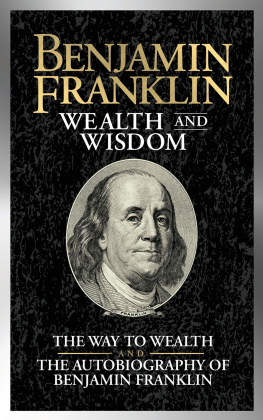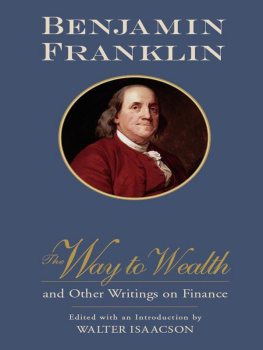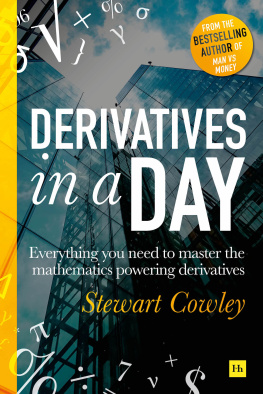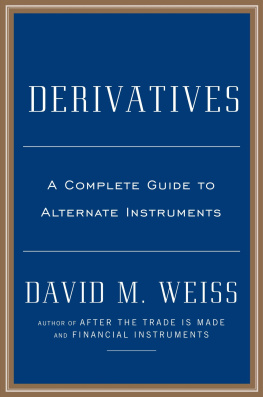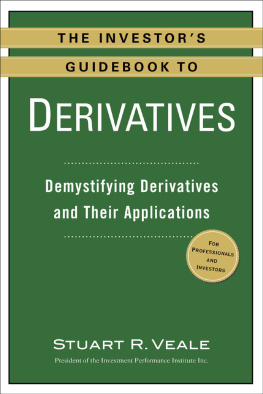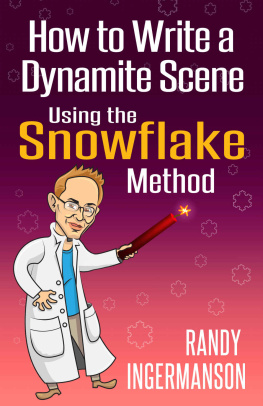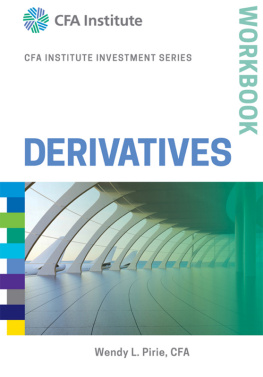Benjamin Lee and Randy Martin - Derivatives and the Wealth of Societies
Here you can read online Benjamin Lee and Randy Martin - Derivatives and the Wealth of Societies full text of the book (entire story) in english for free. Download pdf and epub, get meaning, cover and reviews about this ebook. year: 2016, publisher: University of Chicago Press, genre: Romance novel. Description of the work, (preface) as well as reviews are available. Best literature library LitArk.com created for fans of good reading and offers a wide selection of genres:
Romance novel
Science fiction
Adventure
Detective
Science
History
Home and family
Prose
Art
Politics
Computer
Non-fiction
Religion
Business
Children
Humor
Choose a favorite category and find really read worthwhile books. Enjoy immersion in the world of imagination, feel the emotions of the characters or learn something new for yourself, make an fascinating discovery.

- Book:Derivatives and the Wealth of Societies
- Author:
- Publisher:University of Chicago Press
- Genre:
- Year:2016
- Rating:5 / 5
- Favourites:Add to favourites
- Your mark:
- 100
- 1
- 2
- 3
- 4
- 5
Derivatives and the Wealth of Societies: summary, description and annotation
We offer to read an annotation, description, summary or preface (depends on what the author of the book "Derivatives and the Wealth of Societies" wrote himself). If you haven't found the necessary information about the book — write in the comments, we will try to find it.
Derivatives and the Wealth of Societies — read online for free the complete book (whole text) full work
Below is the text of the book, divided by pages. System saving the place of the last page read, allows you to conveniently read the book "Derivatives and the Wealth of Societies" online for free, without having to search again every time where you left off. Put a bookmark, and you can go to the page where you finished reading at any time.
Font size:
Interval:
Bookmark:
EDITED BY BENJAMIN LEE AND RANDY MARTIN
THE UNIVERSITY OF CHICAGO PRESS
CHICAGO & LONDON
The University of Chicago Press, Chicago 60637
The University of Chicago Press, Ltd., London
2016 by The University of Chicago
All rights reserved. Published 2016.
Printed in the United States of America
25 24 23 22 21 20 19 18 17 16 1 2 3 4 5
ISBN -13: 978-0-226-39266-0 (cloth)
ISBN -13: 978-0-226-39283-7 (paper)
ISBN -13: 978-0-226-39297-4 (e-book)
DOI : 10.7208/chicago/9780226392974.001.0001
Library of Congress Cataloging-in-Publication Data
Names: Lee, Benjamin, 1948 editor. | Martin, Randy, 19572015, editor.
Title: Derivatives and the wealth of societies / edited by Benjamin Lee and Randy Martin.
Description: Chicago ; London : The University of Chicago Press, 2016. | Includes bibliographical references and index.
Identifiers: LCCN 2016008499 | ISBN 9780226392660 (cloth : alk. paper) | ISBN 9780226392837 (pbk. : alk. paper) | ISBN 9780226392974 (e-book)
Subjects: LCSH : Derivative securities. | Derivative securitiesSocial aspects. | MarketsMathematical models. | MarketsPhilosophy. | Marxian economics.
Classification: LCC HG 6024. A 3 . D 45 2016 | DDC 332.64/57dc23 LC record available at http://lccn.loc.gov/2016008499
 This paper meets the requirements of ANSI / NISO Z 39.481992 (Permanence of Paper).
This paper meets the requirements of ANSI / NISO Z 39.481992 (Permanence of Paper).
This book is dedicated to our colleague, friend, and coauthor
Randy Martin
19572015
Benjamin Lee
Arjun Appadurai
Edward LiPuma
Benjamin Lee
Robert Meister
Randy Martin
Emanuel Derman
Elie Ayache
Robert Wosnitzer
ARJUN APPADURAI , Goddard Professor of Media, Culture, and Communication, New York University. Former provost of The New School. Author of Banking on Words : The Failure of Language in the Age of Derivative Finance.
ELIE AYACHE , founding director, ITO 33, a company that makes financial software. Author of The Blank Swan : The End of Probability and The Medium of Contingency: An Inverse View of the Market.
EMANUEL DERMAN , director, Financial Engineering Program, Columbia University. Former director, Quantitative Strategies, Goldman Sachs. Author of My Life as a Quant: Reflections on Physics and Finance and Models Behaving Badly: Why Confusing Illusion with Reality Can Lead to Disaster, on Wall Street and in Life .
BENJAMIN LEE , University Professor of Anthropology and Philosophy and former provost, The New School. Author of Talking Heads: Language, Metalanguage, and the Semiotics of Subjectivity ; coauthor of Financial Derivatives and Globalization of Risk .
EDWARD LIPUMA , professor of anthropology, University of Miami. Author of Encompassing Others: The Magic of Modernity in Melanesia ; coauthor of Financial Derivatives and the Globalization of Risk.
RANDY MARTIN , professor of art and public policy and director of the Graduate Program in Arts Politics at New York University. Author of Knowledge LTD: Toward a Social Logic of the Derivative .
ROBERT MEISTER , professor of social and political thought, Department of History of Consciousness, University of California at Santa Cruz. Author of After Evil: A Politics of Human Rights.
ROBERT WOSNITZER , clinical assistant professor, New York University Stern School of Business. Vice president at Lehman Brothers, Banc One, and First Union. Director, Scotia Capital.
One of the most revealing moments of the global financial crisis occurred during Alan Greenspans exchange with Henry Waxman at the hearings of the Government Oversight Committee of the House of Representatives held in the fall of 2008:
REP. HENRY WAXMAN : The question I have for you is, you had an ideology, you had a belief that free, competitiveand this is your statementI do have an ideology. My judgment is that free, competitive markets are by far the unrivaled way to organize economies. Weve tried regulation. None meaningfully worked. That was your quote. You had the authority to prevent irresponsible lending practices that led to the subprime mortgage crisis. You were advised to do so by many others. And now our whole economy is paying its price. Do you feel that your ideology pushed you to make decisions that you wish you had not made?
ALAN GREENSPAN : Well, remember that what an ideology is, is a conceptual framework with the way people deal with reality. Everyone has one. You have toto exist, you need an ideology. The question is whether it is accurate or not. And what Im saying to you is, yes, I found a flaw. I dont know how significant or permanent it is, but Ive been very distressed by that fact.
REP. HENRY WAXMAN: You found a flaw in the reality...
ALAN GREENSPAN: Flaw in the model that I perceived is the critical functioning structure that defines how the world works, so to speak.
REP. HENRY WAXMAN: In other words, you found that your view of the world, your ideology, was not right, it was not working?
ALAN GREENSPAN: That isprecisely. No, thats precisely the reason I was shocked, because I had been going for 40 years or more with very considerable evidence that it was working exceptionally well.
In his prepared testimony Greenspan had linked his worldview to the intersection between shareholder value, deregulation, and financial risk management, specifically Black-Scholes, the mathematical model for financial markets containing the derivative investment instruments that had collapsed in the 2008 crisis. Greenspan explained the flaw the crisis had exposed this way:
[T]hose of us who have looked to the self-interest of lending institutions to protect shareholders equity (myself especially) are in a state of shocked disbelief.... It was the failure to properly price such risky assets that precipitated the crisis. In recent decades, a vast risk management and pricing system has evolved, combining the best insights of mathematicians and finance experts supported by major advances in computer and communications technology. A Nobel Prize was awarded for the discovery of the pricing model that underpins much of the advance in derivatives markets. This modern risk management paradigm held sway for decades. The whole intellectual edifice, however, collapsed in the summer of last year because the data inputted into the risk management models generally covered only the past two decades, a period of euphoria.
By invoking worldview and ideology, Greenspan, if only for a moment, moved discussion beyond the two available explanations of the financial crisis. These focus either on technical failures (leaky Gaussian copulas and faulty value-at-risk measures) or narratives of greed and speculation. Technical explanations feed into the current hope of discovering some regulatory fix for derivative ills while tales of excess lead to calls for the abolition of derivatives as a form of wealth creation. For one side the goal is to return to some state of business as usual. For the other it is to construct a political economy free from the danger intrinsic to financial speculation with derivative instruments and thereby produce a more just and sustainable sociopolitical world order.
The collaboration this book represents proposes an integration of a social and a technical understanding of derivative finance within a single analytic and interpretive frame to allow discussion to escape the dead end produced by the irreconcilable solutions to the recent crisis offered by its alternative explanations. Our book proposes to use what was disclosed by the financial crisis to show that technical knowledge of derivative finance can be drawn upon to revalue and further peoples capacity to act together constructively in innovative ways. Indeed it argues that new social, aesthetic, and political possibilities are already in play in the abundance of social wealth that derivative finance capitalism has placed within reach during the past forty years. How fundamental technical knowledge of both the social and of wealth production using derivative instruments can be woven into a single coherent interpretive and analytic language of human possibility and well-being in our time is the challenge this first volume to be published from our collaboration takes up.
Font size:
Interval:
Bookmark:
Similar books «Derivatives and the Wealth of Societies»
Look at similar books to Derivatives and the Wealth of Societies. We have selected literature similar in name and meaning in the hope of providing readers with more options to find new, interesting, not yet read works.
Discussion, reviews of the book Derivatives and the Wealth of Societies and just readers' own opinions. Leave your comments, write what you think about the work, its meaning or the main characters. Specify what exactly you liked and what you didn't like, and why you think so.

